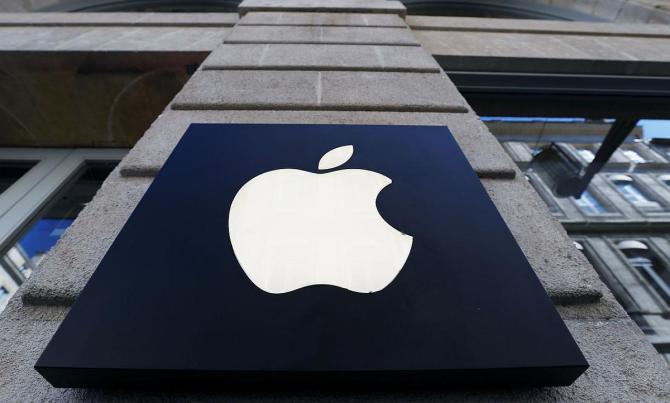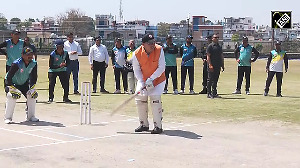Union Minister of State for Information Technology Rajeev Chandrasekhar has rebutted The Washington Post report on the Indian government allegedly targeting Apple after the company warned independent Indian journalists and opposition party politicians that government hackers may have tried to break into their iPhones and called it 'half facts, fully embellished'.

The Union Minister further called the report 'terrible' and 'tiresome'.
Taking it on his social media X, Chandrasekhar stated, 'Rebutting @washingtonpost's terrible storytelling is tiresome, but someone has to do it. This story is half facts, fully embellished.'
In a story published on December 27 in association with Amnesty, the Post had reported that certain journalists had been targeted with the spyware on their iPhones, with the latest identified case occurring in October.
In its post on X, the Post claimed, 'A day after Apple warned independent Indian journalists and opposition party politicians in October that government hackers probably tried to break into their iPhones, officials under Prime Minister Narendra Modi promptly took action against Apple.'
Following this, Chandrasekhar raised a concern and emphasised that the story didn't include Apple's response, which came on October 31.
'Left out of the story is Apple's response on Oct 31- day of threat notifications,' he posted.
Further sharing the story, Chandrashekhar quoted Apple's response, which said that Apple does not attribute the threat notifications to any specific state-sponsored attacker, adding that some Apple threat notifications may be false alarms or are not detected.
'Apple does not attribute the threat notifications to any specific state-sponsored attacker. State-sponsored attackers are very well-funded and sophisticated, and their attacks evolve over time. Detecting such attacks relies on threat intelligence signals that are often imperfect and incomplete. It's possible that some Apple threat notifications may be false alarms, or that some attacks are not detected. We are unable to provide information about what causes us to issue threat notifications, as that may help state-sponsored attackers adapt their behaviour to evade detection in the future,' the post highlighted.
He further emphasised that the Ministry of Electronics & IT and his response are for Apple to explain if their devices are vulnerable and what triggered these notifications.
Moreover, Apple was asked to join the enquiry with the Indian Computer Emergency Response Team, stressing that te enquiry is ongoing.
'@GoI_MeitY's & my response to this incident has been consistent and clear from the incident - That it is for Apple to explain if their devices are vulnerable and what triggered these notifications. Apple was asked to join the enquiry wth @IndianCERT and meetings have been held and enquiry is ongoing. Those are the facts. Rest of story is creative imagination & clickbaiting at work masquerading as journalism,' he added.
Chandrashekhar said that the story is a creative imagination and 'click baiting at work masquerading as journalism'.












 © 2025
© 2025